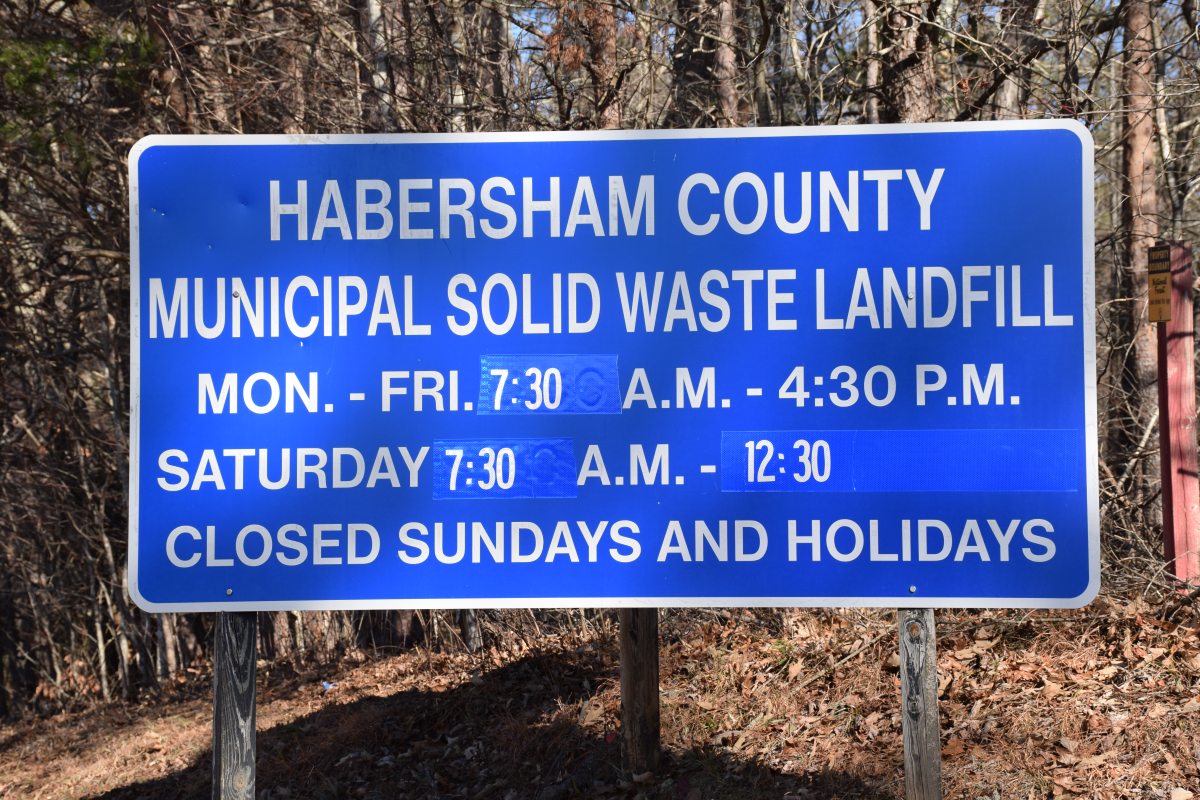
(Georgia Recorder) – Agriculture is Georgia’s top industry, and broilers are the state’s top farm product.
But the mess that large-scale poultry farming causes can create tensions between residents and corporate owners. And that is playing out in a northeast Georgia community, where a proposed poultry rendering plant has residents up in arms about the potential fouling of the Broad River, a source of water and recreation for Royston and nearby communities.
As reported by Now Habersham on Friday, May 2, the wastewater treatment facility proposed on the Broad River remains a point of contention, as about 50 residents packed the Franklin County Justice Center last week to demonstrate opposition to the project. During a work session, Tuesday, April 29, nearly a dozen of those residents spoke against future construction of the $26–30 million wastewater treatment plant, which would be funded and built by the city of Franklin Springs.
If Pilgrim’s Pride decides to bypass Franklin Springs as a site for its processing plant, the company says it’s sure to pop up somewhere else in Georgia’s chicken farm territory.
For now, the Franklin Springs locals are the ones in the crosshairs.
Franklin Springs resident Magan Crump recently received jarring medical advice from her doctor: He advised her to move away from her hometown in case a new wastewater treatment and poultry byproduct processing plant opened in her community.
After the 40-year-old was diagnosed seven months ago with pulmonary hypertension, or high blood pressure within the lungs, her doctor recommended against Crump living close to a planned large wastewater treatment plant or a poultry rendering plant where the odors make it hard to breathe.
Rumors on social media escalated a public uproar in early March regarding the possibility of a poultry processing plant coming to Franklin Springs, a rural community about two hours northeast of downtown Atlanta.
Critics say they’re worried local officials will try to attract another animal rendering plant that would rely on the new treatment plant to discharge millions of gallons of wastewater into the Broad River.
“Franklin Springs has a population of about 1,100 people so there is absolutely no need for a wastewater treatment plant that size and that massive to be in this area,” Crump said. “What we are all concerned about is the industrial waste that goes along with that and how the poultry plant waste would impact the river.”
A Madison County Journal open records request in early April uncovered emails last year between Pilgrim’s Pride officials and the Franklin Springs mayor about whether the size of the city’s planned wastewater treatment plant could sustain the company building a poultry rendering plant in Franklin.
A chicken rendering facility re-purposes animal byproducts such as bones. feet, oils and fats into other goods such as animal feed and fertilizers.
A common disposal method for the remaining sludge involves companies getting permission from farm owners to dump the “soil amendments” fertilizer onto their land.
The uproar was intense enough that Pilgrim’s Pride publicly announced last week that it would not build a chicken rendering facility in Franklin Springs and would explore alternative locations in Georgia.
The news about the prospective poultry plant has now placed Franklin County commissioners under pressure from several residents to rescind a wastewater plant agreement with Franklin Springs.
The new wastewater treatment plant is still in the works – and poultry waste could still one day end up at the facility, says Franklin Springs Mayor Lee Moore.
Moore has said that no contract has been signed with Pilgrim and that the city intends to fund the water treatment project primarily through bonds. Moore has also doubled down on his intention to entice another poultry company to a county that is among the top producers for the chicken industry.
Moore said he will continue pursuing new industries to the county.
“No industry is coming at this time, and there is no Pilgrim’s Pride plant of any type coming to Franklin Springs, period,” Moore said.
“Anything that we can do to make our agricultural county greater, I’m all in favor of it. If it’s anything that deals with poultry or cattle, I’m all in favor of that. But you know, once again, if something like that comes, it’s got to be built correctly. They have to be a good industry. They have to be good neighbors, and they will be held accountable by the city of Franklin Springs”
Community pushback
Members of local movements like “Save Broad River” and “Stop the Rendering” have been leading the opposition against Pilgrim’s Pride.
Franklin Springs residents have started a petition to remove Moore from office over his handling of the Pilgrim’s Pride and wastewater plant issues.
The project faces strong opposition from the Broad River Watershed Association and local residents due to concerns about water pollution and the facility’s proximity to Emmanuel University and residential areas.
Tonya Bonitatibus, executive director of Savannah Riverkeeper, said if Pilgrim’s rendering plant is built somewhere, it would likely be the largest of its type in Georgia.
One of the major concerns is about the environmental impact of a proposed rendering plant producing more soil amendments from animal byproducts, she said.
Soil amendments are commonly used on farms to improve certain physical characteristics, such as water retention or reducing compactness.
Bonitatibus said Pilgrim’s plant would not only increase the millions of gallons of leftover waste that would become soil amendments, but it could also result in vast amounts of industrial sewage being treated and discharged into waterways, she said.
The leftover chicken parts processed at a wastewater facility will include significant amounts of fats, oils, and greases that can harm water quality and aquatic life if not properly treated, Bonitatibus said.
“When an animal goes into an animal processing facility, they’re going to use the big chunks of the meat, right?” Bonitatibus said. “But you’re going to have feet and beaks and feathers and fat left over and at the end of that, that waste can’t go to a wastewater treatment plant or a landfill.”
This year isn’t the first time there has been controversy in Franklin County over a proposed Pilgrim plant. In 2021, the county would withdraw plans following protests over a proposed $70 million pet food ingredient and rendering plant near Carnesville.
“I have a grandchild with compromised lung issues who was born premature,” Franklin Springs resident Donna Bennett said. “I’m also a real estate agent so the environmental, private property impact is a huge concern. It’s infuriating that this has been going on behind our backs for three to four years in this city, and no one had any knowledge until about three months ago.”
Franklin County officials have joined several neighboring counties to express opposition to having the poultry plant built locally.
At a workshop meeting held Tuesday, Franklin County Chairperson Courtney Long read a statement indicating the board’s desire to protect the river and its surroundings.
“Many of those being targeted had absolutely no hand whatsoever in creating this situation and threatening them we feel like only weakens the cause that we’re all trying to fight,” Long said at the meeting, which was livestreamed.
“When we entered into the intergovernmental agreement, we did so by following the direction set by the previous board,” Long said. “As stewards of your tax dollars, we made that decision because it saved our taxpayers millions of dollars.”
On Tuesday, Royston resident Kay Williams criticized county commissioners for entering into a water treatment agreement.
“When you say you love us and you love the river, there is no earthly way you love anything, to let a poultry place come here and contaminate what we love and live with (like) our drinking water,” Williams said.
Moore disputes claims that an animal processing facility’s waste would be harmful after the animal byproducts and other contaminants are properly removed by wastewater treatment plants.
“Anything that would come to Franklin Springs would have to be treated by that industry’s own wastewater treatment plant, then it would have to be sent to Franklin to be treated before it would be emptied into the Broad River,” Moore said. “It would be a tremendous gain for the Broad River to get some clean water in it.”
Poultry industry critical to state
Northeast Georgia is a hotspot for the state’s prized poultry industry.
But other rural areas of the state are home to various poultry and other animal byproduct processing plants.
Mike Giles, president of the Georgia Poultry Federation, said for the poultry industry to continue to grow in Georgia, plants like Pilgrim’s rendering facilities are important.
Giles has defended the poultry industry when it allows chicken processing byproducts to be properly injected into the soil instead of being haphazardly dumped on top of land.
Rendering plants like the one apparently now scuttled in Franklin Springs are important since only two-thirds of each broiler chicken is for human consumption, Giles said.
Environmental groups in Georgia and other states have long voiced concerns about the odors and the potential for the waste to reach waterways that residents rely on for drinking and recreational activities.
“I would say that any community that is considering this type of a rendering facility needs to immediately go visit one first and try to understand how they can put the proper protections in place for their community before they allow the company to come in,” Bonitatibus said.







